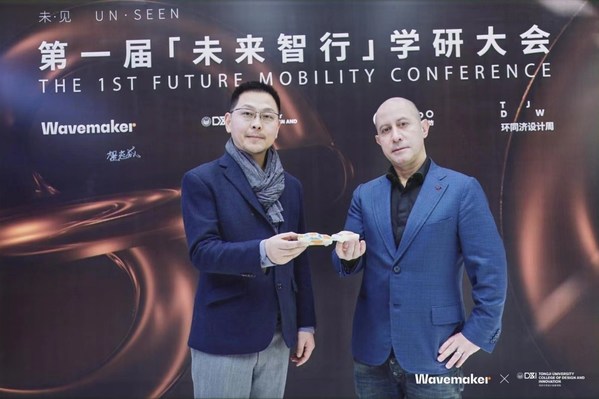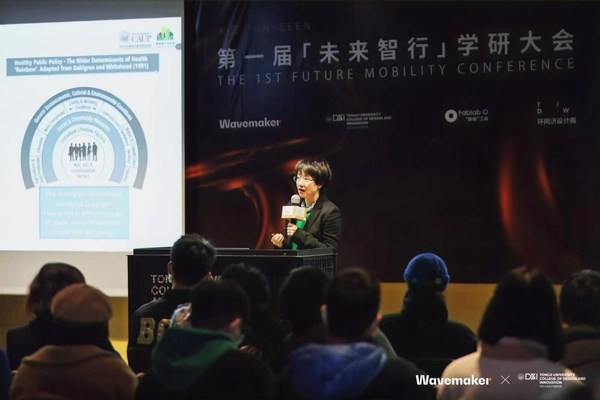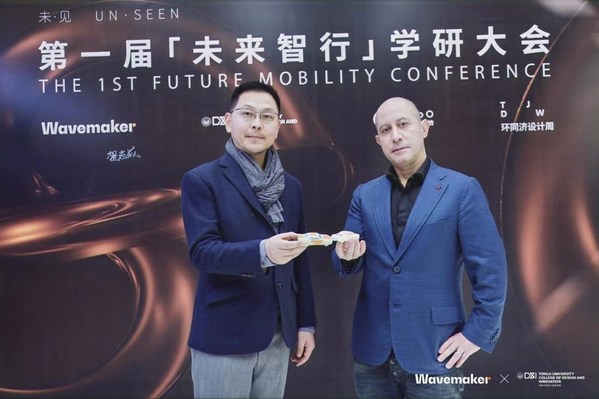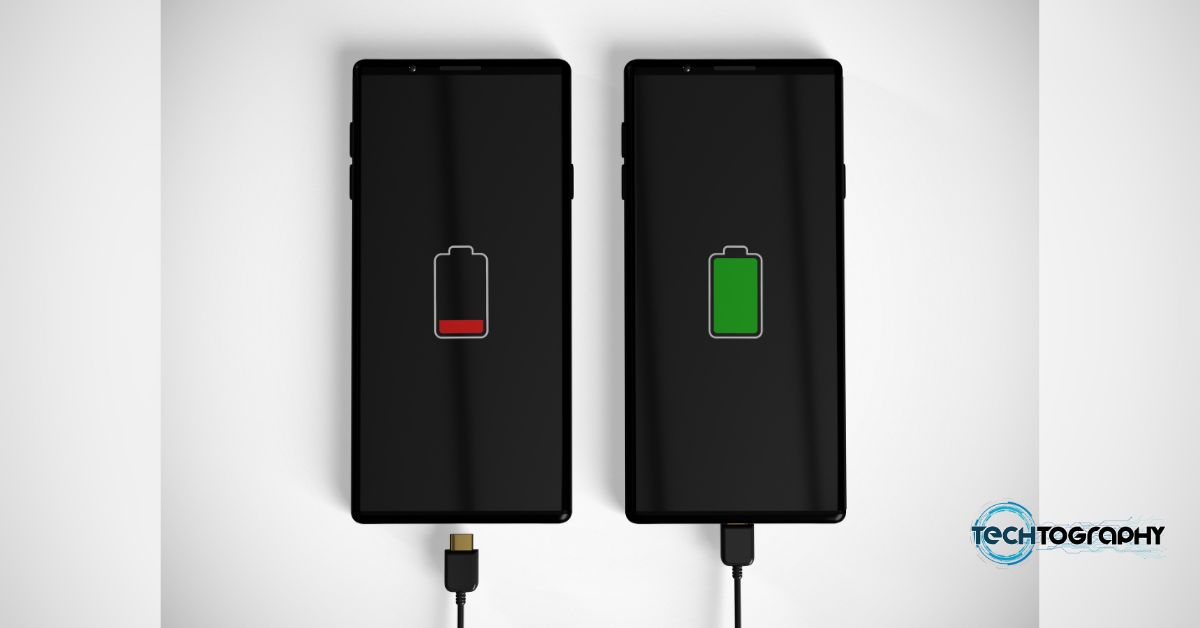SHANGHAI, Dec. 6, 2021 /PRNewswire/ — On Sunday, December 5, the first "UN·SEEN | Future Mobility Conference" and theme workshop (henceforth referred to as the Conference) was launched at Tongji University’s school of Design & Innovation. At a time when the auto industry is experiencing fundamental transformation under pressing concerns such as AI, sustainability, and smarter urban planning, the Conference – jointly initiated by Wavemaker China and Tongji School of D&I FABO – aims to explore emerging trends in the auto ecosystem and, from the perspective of design, reimagine automobile and future mobility. Jeff Ding, Associate Professor at the School of D&I, and Jose Campon, CEO of Wavemaker China, attended the conference and delivered key speeches.
The Conference, with its bold agenda, also brought together a diverse attendance. From intelligent mobility platform representative SAIC Mobility, experts in design & planning, the social sciences, fashion and culture industries, aspiring students from top Shanghai universities, to media veterans in mobility, technology and automobile sectors such as RQ, Businesscars, Selecar, Autocarweekly, 42HOW, iAUTO, Autolab, EngineCode9, MJ CarShow, TopDriver, Qicheguanchajia, Autopress, this interdisciplinary, cross-industry event successfully connected abstract academic research to concrete practices that turn ideas into reality.
Technology, Environment and Life Scenarios – Three Critical Factors Driving the Development of Future Mobility
The wave of technological innovation embodied by the third industrial revolution, smart city, mobile Internet, 5G, Big Data, artificial intelligence and blockchain has brought not only new alternatives to everyday mobility but is, at the same time, reshaping the culture and value embedded in traditional automobile, challenging them with new ideas such as intelligent transportation, autonomous driving and sharing economy.
Meanwhile, as China commits to its ambition of carbon neutrality by 2060, how does the auto industry best transition to a cleaner, more efficient and sustainable future – in addition to maintaining the value it already brings to society, is becoming more and more pressing by the day.
Sensing the once-in-a-lifetime opportunity, companies and cities around the world have already started to (re)conceive a more sustainable and organic future symbiosis between transportation, mobility, and life scenarios. In North America, Google Sidewalk lab built actual future city scenarios in Toronto. On the other side of the world, Shanghai—based on its own understanding of urban communities—put forth the 15-minute Life Circle proposition, rearranging all that is needed for future urban life within a 15-minute walkable radius.
Jose Campon, CEO of Wavemaker China, remarked when commenting on the development and transformation of automobiles that, "looking back at history, the key driving forces of automobile transformation have always been environment, energy, technology and needs. With the rapid development of battery technology, AI, and 5G, the role, culture and value of automobile are currently evolving at an unprecedented speed. In 10 years – by 2035, we will face a new world".
On how to respond to a future mobility and auto industry replete with unforeseen challenges, Jeff Ding, Associate Professor at Tongji University’s School of Design & Innovation, shared his thoughts. "UNSEEN encompasses both the unforetold and the unforeseen", he said, "At the moment, only by constantly upgrading our capacities, uniting experience and wisdom with technology to more accurately predict the future, will we be truly prepared for the UNSEEN".
Caesar Hao, General Manager of Wavemaker automotive business, agreed. In thanking all participants and concluding the one-day event, Hao noted that "we showcased today that even in foreseeable energy, climate, and health crises, we could still stay true to our societies, communities, and all those around us, contributing together in creating a more flexible, healthier, and better mobility experience. We look forward to seeing more manufacturers, brands, and media partners in joining our events in the future".
Knowing that the future demands fundamental transformations, how will the transportation and mobility sector – one that in many ways, still proves inadequate in translating experience into practical solutions, not to mention the myriad complexities from unintended environmental and technological consequences – address these accelerated issues and complete its metamorphosis? It is against the backdrop of this heightened urgency that the Conference, bringing together the Industry-Academia-Research complex, explored the multifaceted challenges and opportunities brought by its proposition to realizing a future of smart mobility.
Foresight Research + Pioneer Practice – Industry-Academia-Research Integration and Young Blood
As a leader in creatively utilizing the integrated Industry-Academia-Research model to conduct future-orient research as well as practical co-creation, the first UN·SEEN | Future Mobility Conference is a momentous collaboration between Wavemaker – key auto industry practitioner & observer, and Tongji D&I FABO – pioneer in experimental creative design.
Standing at the forefront of the marketing and communications industry, this event was Wavemaker’s latest effort in facilitating the auto sector’s current transformation. Together with Tongji University, Sunday’s themed workshop gathered industry veterans, solution experts, renowned scholars, media representatives and aspiring newcomers all under one roof, further reversing the Industry-Academia-Research fragmentation and showcasing, through interdisciplinary and cross-industry collaboration, a genuine case of Industry-Academia-Research integration.
In discussing innovative and foresightful topics that are vital to the development of the industry, the Conference – anchored in environmental sustainability, AI & Metaverse, the 15-minute community life circle, and automobile culture & value – explored divergent scenarios and designed innovative strategies. Related themes are:
1. Environmental Sustainability. On the background of China’s 2060 carbon neutrality pledge, how will transportation and mobility change? How will the future auto industry achieve prosperity (new normal) while maintaining environmental sustainability?
2. AI & Metaverse. Smart transportation is the trend of tomorrow. How does AI help us transition to smart mobility?
3. 15-minute Community Life Circle. Under the direction of a new urban planning ethos, remote working, reduced consumption and simplified life in general have been accepted as the post-pandemic new normal. How to change mobility in responding to the new lifestyles?
4. Automobile Culture & Value. Transportation-sharing and autonomous driving have already changed the definition of the traditional automobile. How to explore new possibilities of automobile role and culture?
Centered on the four themes and on the principles of Design Thinking, a series of scenario-explorative and innovative strategy design workshops took place to debate and discover solutions to future challenges.
The first UN·SEEN | Future Mobility Conference and theme workshop, with its pioneer discussion, polemic debate, vertical & horizontal Industry-Academia-Research integration, stimulated and inspired scholars as well as non-academic professionals in constructively (re)thinking a post-pandemic mobility order and auto value, providing critical feedback for the auto industry’s ongoing transition., What is not yet seen is in fact, already among us. As a leading agency in the communications industry, Wavemaker China – together with other pioneers and challengers in the mobility sector – will continue to facilitate the auto industry’s transformation in the near future, and continue to contribute its share in bringing the age of smart mobility one step closer to where we are now.
Introduction of Initiators:
About Wavemaker
We believe there always is a better way to grow. We positively provoke growth for our clients by reshaping consumer decision-making and experiences through media, content and technology. The Wavemaker way is globally consistent. Fueled by the world’s most powerful consumer data, we understand where and how marketing can intervene decisively to help brands win more sales. Our 7,200 people across 88 markets have the deep knowledge, confidence and courage to provoke growth for some of the world’s leading brands and businesses. We are a part of GroupM, WPP’s global media investment management company. Discover more on wavemakerglobal.com, Twitter and LinkedIn, or follow us on Wechat at Wavemaker_China.
Tongji D&I FABO:
Tongji University continues to rise in the global QS Art and Design ranking – from 26 in 2017 to 13 in 2020 and 2021, positioning first in Asia for four consecutive years, in addition to being selected as the "double first-class and building a world-class discipline"; All three undergraduate majors of the university have been deemed as national first-class disciplines; in 2015, it led the first "IV peak discipline" in Shanghai.
Fablab O (FABO), is a member of the global MIT centered Fablab open-source laboratory network – a first in China. FABO is dedicated to building China’s maker innovation system, condensing the backbone of local social sustainability and economic reform, while realizing China’s quantum leap from "Manufactured in China" to "Created in China". FABO is known for its cross-field joint innovation efforts as it continues to lead active exploration and practice in education, distributed manufacturing and intelligent innovation industries.





